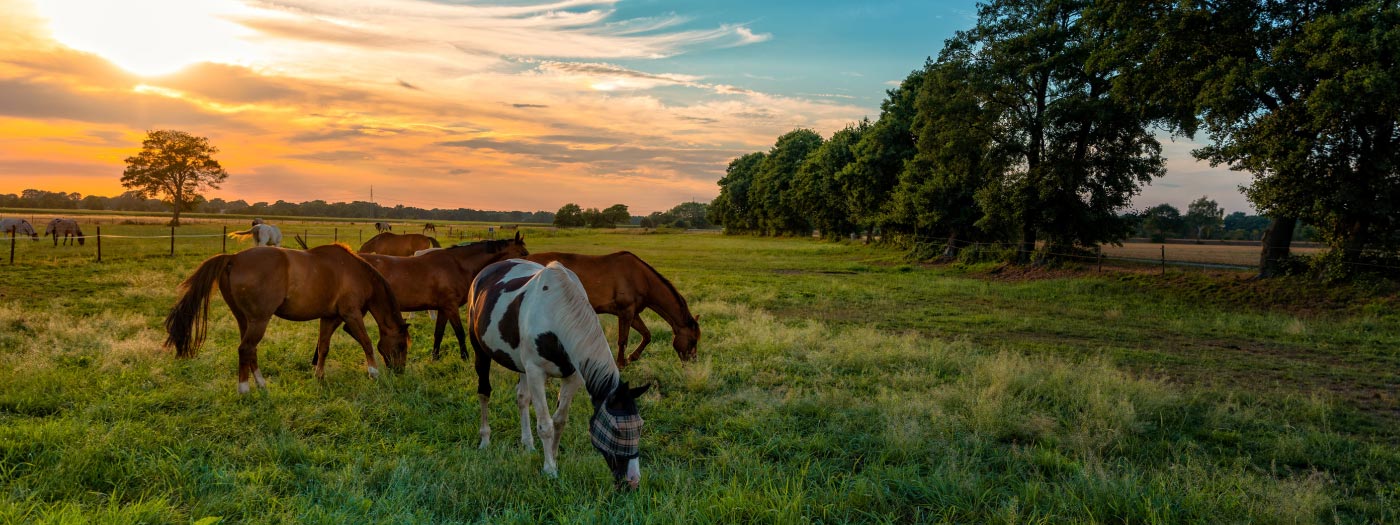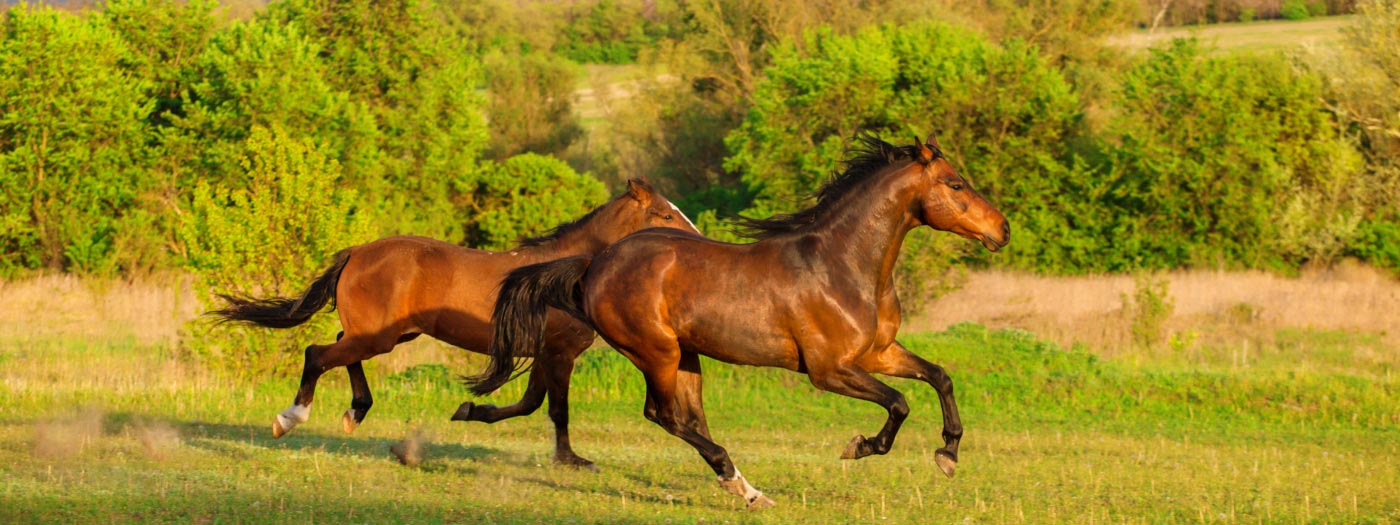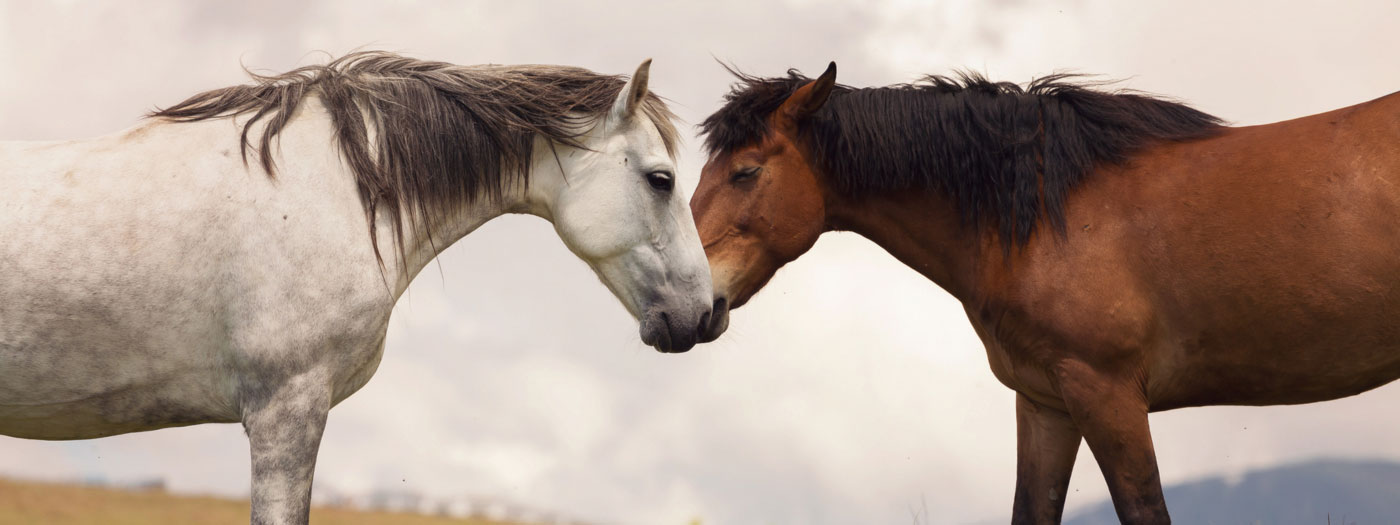
When we think of horse welfare, many of us picture shiny coats, clean stables, and good nutrition. But true welfare starts much deeper – with how a horse lives every day.
What Is “Species-Appropriate Living”?
Species-appropriate living means allowing horses to live in ways that reflect their evolutionary design.
Horses are herd-dwelling grazers who move and forage for most of the day. Modern management often limits these natural behaviours with stabling, restricted turnout, and isolated living. Over time, that can create stress, frustration, and behavioural issues.
Creating a more natural lifestyle doesn’t mean going “wild”, it means providing a domestic environment that honours who horses are.
The Core Needs of Every Horse

Forage, Always
Horses are designed to graze 16–18 hours a day. Constant access to hay or grass supports gut health and keeps their minds calm.Freedom to Move
Movement supports muscle tone, digestion, and mental balance. A track system or large paddock encourages natural activity and exploration.Companionship
Horses are deeply social. Living with companions reduces anxiety and builds confidence.Environmental Comfort
Shelter, soft ground, and varied terrain allow horses to self-regulate and stay comfortable year-round.Predictability and Choice
Routine and small daily choices (when to eat, rest, or socialise) give horses a sense of control – which reduces stress.
The 5 F’s of Positive Welfare

The modern approach to welfare goes beyond preventing suffering; it’s about creating opportunities for positive experiences.
The 5 F’s of Positive Welfare help guide this mindset:
Food: Access to a natural, fibre-rich diet and the freedom to forage throughout the day.
Freedom: Space and autonomy to move, roll, explore, and make choices.
Friends: Social contact with other horses for safety, grooming, and companionship.
Fun: Enrichment and play that stimulate curiosity and joy.
Feeling Safe: A secure, predictable environment where the horse trusts both humans and surroundings.
When these five needs are met, horses can experience contentment, confidence, and genuine happiness, not just the absence of distress.
Why It Matters

A horse that lives in line with its nature is calmer, easier to handle, and more resilient. Meeting these needs strengthens both physical health and emotional stability, making training and bonding far more rewarding.
Horses living species-appropriate lives show:
✔️ Lower stress levels
✔️ Better digestion and immune function
✔️ Fewer behavioural issues
✔️ More willingness and focus
On the other hand, unmet needs often lead to frustration, aggression, or repetitive behaviours like crib-biting – clear signs that something deeper is missing.
Building True Welfare
Species-appropriate living isn’t about perfection, it’s about progress. Each small step toward a more natural lifestyle improves welfare and connection.
A horse that can graze, move, play, and connect is a horse that can thrive. Species-appropriate living isn’t an ideal – it’s the foundation of welfare. Because when we let horses live like horses, everything else falls into place.
Looking for help from a qualified animal behaviourist?
At Gentled Animals, we’re here to help you and your horse live harmoniously, with understanding and kindness at the heart of every solution.